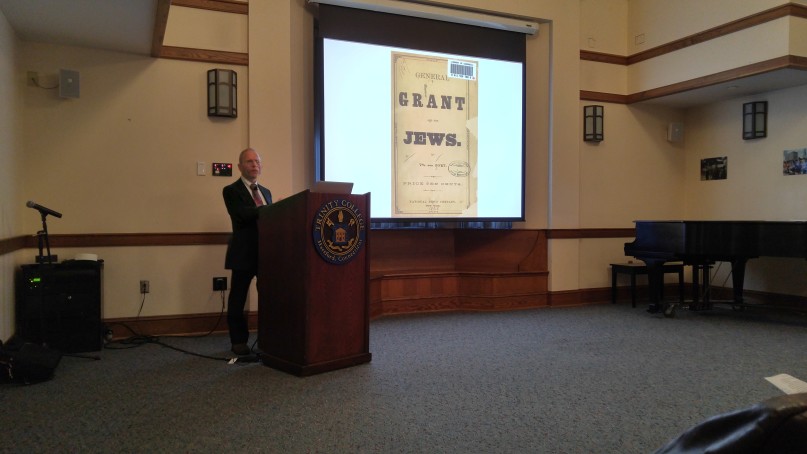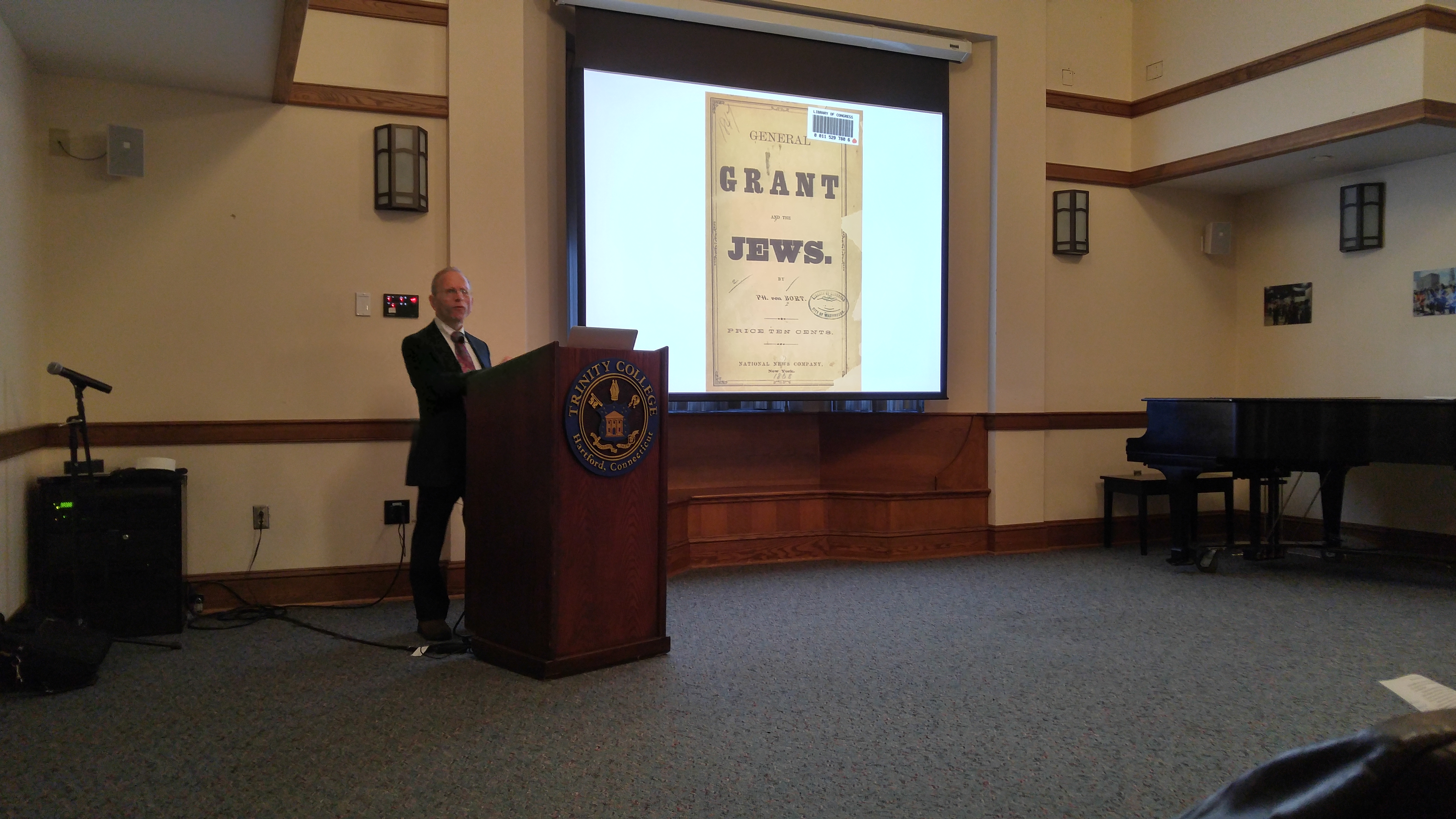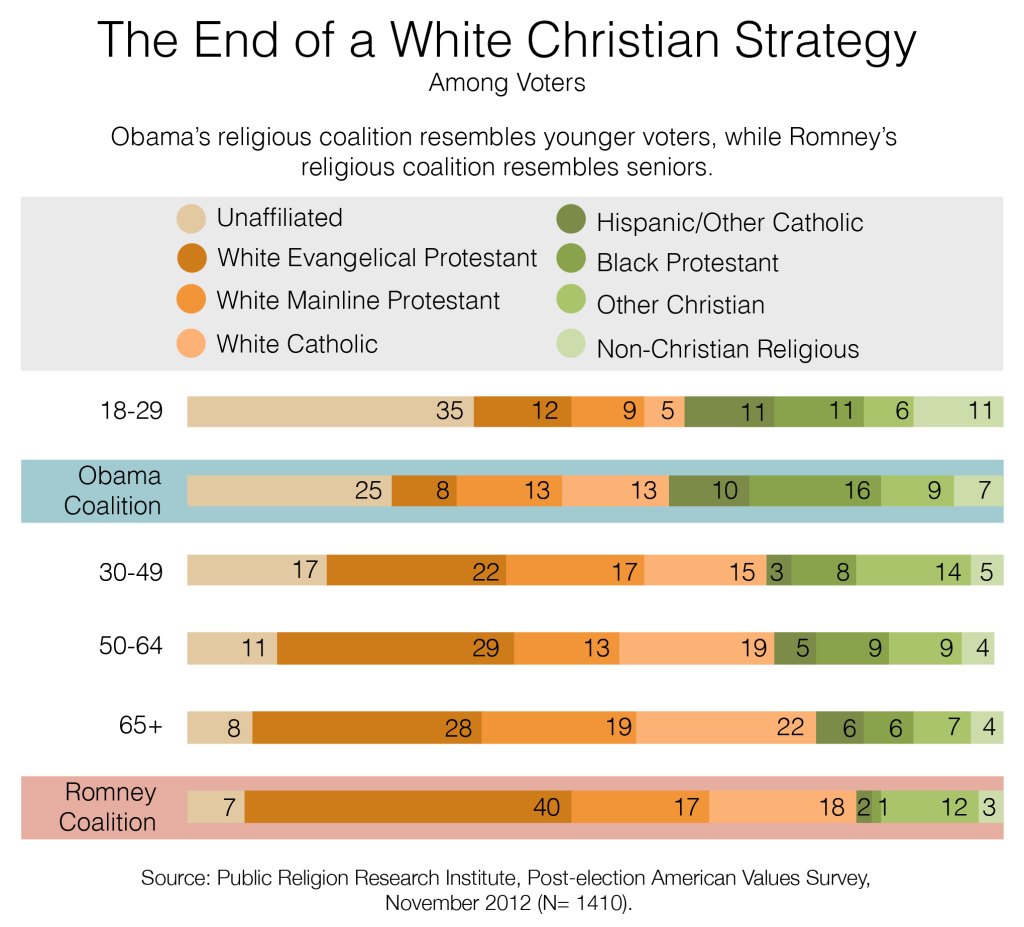I’m as interested as anybody in white evangelicals, but to judge from the survey questions being asked, you’d think there was no other religious demographic worth paying political attention to this primary season. And that’s not the case.
Let’s start with the white evangelicals themselves They are by far the largest religious component of the GOP coalition, constituting fully 40 percent of the Romney vote in 2012. So unsurprisingly there’s been a good deal of speculation, including in this corner, about why so many of them are currently supporting the minimally religious Donald Trump.
We might get our answer if pollsters posed the question about frequency of worship attendance asked in every general election exit poll this century. My guess is that Trump is picking up the lion’s share of the evangelicals who don’t go to church that much, but at this point there’s no way to know.
Beyond white evangelicals, the Republican coalition includes large tranches of white Catholics and Mainline Protestants. In the past, these groups have shied away from evangelical paladins like Mike Huckabee. It would be nice to know if, for example, Catholic Republicans are particularly attracted to their co-religionists Jeb Bush and Marco Rubio. And if mainliners are lining up behind Anglican John Kasich.
On the Democratic side, the religious equivalent of white evangelicals are the Nones — those who answer “none” when asked, “What is your religion, if any?” In 2012, Nones constituted 25 percent of the Obama coalition, and I wouldn’t be surprised if the number exceeds 30 percent this time around.
Perhaps not coincidently, Democratic Nones now have one of their own to vote for in Bernie Sanders. It’s probable that he is getting the support of the large majority of them, but again we can’t know unless a pollster asks a religious identity question. It would also be good to know how more and less frequent worship attenders split between Sanders and Hillary Clinton.
Finally, there are the Jews, a religious body that because of geographical concentration, very high turnout, and financial contributions to candidates punches way above its demographic weight.
Yesterday evening , Brandeis University professor Jonathan Sarna, the leading historian of Jews in America, gave a lecture at Trinity College tracing organized Jewish involvement in American politics back to the 1864 campaign of Abraham Lincoln. Sarna pointed out that while at least 60 percent of the Jewish vote has gone to the Democrat in every election since 1928 except one (1980), Orthodox Jews are now solidly Republican and Jews overall are increasingly being pulled towards the GOP because of its unmitigated support for Israel.
In the current race, Sanders, the None senator from Vermont with Christian grandchildren, is a classic ethnic New York Jew. Clinton has a Jewish son-in-law and a husband who enjoyed more Jewish support than any presidential candidate since Hubert Humphrey in 1968. Donald Trump has Orthodox Jewish grandchildren. I’d say it’s time someone took a close look at which Jews are supporting whom.








